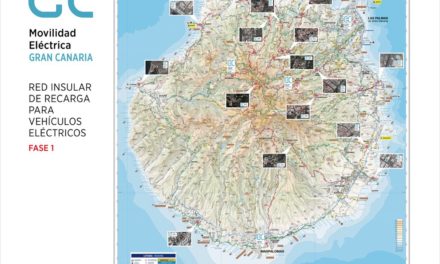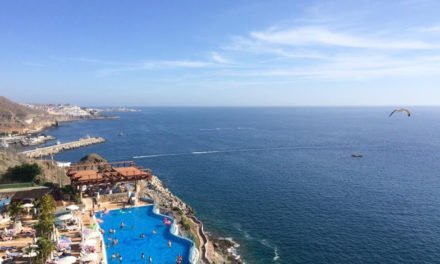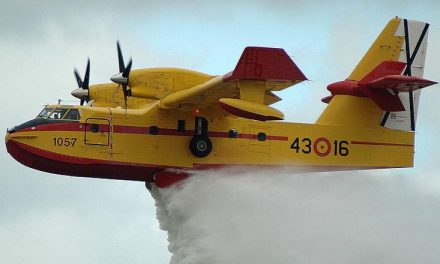The Salvamento Maritime Rescue search plane that has been tracking the 100km-wide strip of ocean between Fuerteventura and Tarfaya (Morocco) this morning has not yet managed to find any sign of a rubber inflatable boat after the distressed occupants put out a call for help after finding themselves in serious trouble. A another alert has also been received following the departure of a second boat, this time from Dakhla.
50 migrants were reportedly aboard the inflatable, including ten women and four minors, who requested help by phone through the Caminando Fronteras human rights collective, who have migrant community outreach programs along several western maritime borders between Africa and Europe, who reported that the occupants were saying that the bottom of their boat was tearing and that they were in danger of sinking.
The Spanish Maritime Rescue received information from the Rabat emergency coordination centre that a Moroccan patrol boat has also joined the search.
Meanwhile, a further departure alert has been received: specifically, a boat that would have left this Monday for the Canary Islands, travelling from Dakhla, in the south of Western Sahara, a 450km distance as the crow flies likely to double when at sea. With another 48 migrants on board, including 17 women and six minors, this Maritime Rescue search has too become a matter of urgency.
There is currently no news at the moment of their whereabouts. NGOs this week have warned of the “very worrying trend” toward a higher proportion of migrant women and children attempting the crossing this year, following the death of a young child last week from severe dehydration at sea.
Spain’s heroic Maritime Rescue service rightly don’t concern themselves with why people might need help, their only focus is to prevent loss of life. Currently SAR resources are searching for nearly 100 people suspected to be at sea trying to cross. NGO’s have warned of a worrying trend towards an increased proportion of women and children attempting the crossing this year. The Salvamento Maritimo have repeatedly debunked ultra-right claims and suspicions of “mother ships” travelling The Canary Route, with every little boat they are aware of having attempted the journey from various points along the West African coast, travelling between 100km and 1000km or more on journeys that take between 3 and 20 days. Most are not properly prepared with insufficient fuel, food or water. Every indication so far this year points to an increase in numbers attempting the journey over last years record breaking 23,023 who arrived, the second highest number of arrivals since records began. It is thought between 500 and 1000 people lost their lives last year in the attempt, but there is just no way of knowing exactly how many.
#EFEFotos | Salvamento Marítimo ha rescatado este sábado a 52 inmigrantes africanos, todos varones, que se dirigían a #GranCanaria en un cayuco localizado 22 kilómetros al sur de la isla.
? EFE/Ángel Medina G. pic.twitter.com/4qACs3gte8— EFE Canarias (@EFE_Canarias) March 20, 2021












